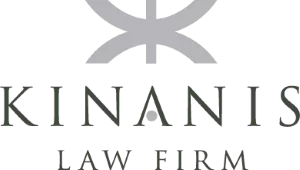A. INTRODUCTION
Blockchain technology has revolutionized the way of doing business globally. In fact, similar to Investment Services, a number of ancillary business activities are now connected to the industry, ejecting the Blockchain technology to endless fields of everyday life.
Instead of shying away from the technological challenge, the Maltese government has adopted legislation that regulates the offering of certain services (known as Virtual Financial Asset Services) to cryptocurrencies, which includes the operation of platforms to exchange such cryptocurrencies, portfolio management and providing investment advice amongst others. This makes Malta a pioneer in this sector and offers legal certainty, to such an extent that following such a commitment from the Government, crypto-giants are already relocating to Malta, seeking to benefit from a regulated environment and a beneficial tax rate.
This publication in fact seeks to give an overview of the recent laws and regulations relating to the Virtual Financial Asset Services (i.e. VFA Services).
The scope of this brochure is restricted to VFA Services. Information relating to Initial Coin Offering (ICOs) is discussed in our brochure: "Malta – ICOs – The New Legislation".
B. TO WHOM DOES THE NEW LAW APPLY?
The legislation applies to any person who intends to provide a Virtual Financial Asset (VFA) Service in or from within Malta.
In order for a person to provide a VFA Service, the following must be met:
- A Licence, which is duly issued by the Malta Financial Services Authority (MFSA);
- To have at all times a VFA Agent, duly authorised by the MFSA.
At this stage, it is crucial to point out that as of the time of the publication of this brochure, the new legislation and relevant rules of the MFSA are still in draft form.
C. DEFINITION OF VIRTUAL FINANCIAL ASSET (VFA)
By way of a definition, a VFA is any form of digital medium recordation that is used as a digital medium of exchange, unit of account, or store of value and that is not one of the following as defined below:
- Electronic Money;
- Financial Instrument; and
- Virtual Token.
Legal definitions of the above:
Electronic Money means electronically, including magnetically, stored monetary value as represented by a claim on the issuer which is issued on receipt of funds for the purpose of making payment transactions (as defined) and which is accepted by a natural or legal person other than the financial institutions that issued the electronic money.
Financial Instrument includes the following:
- Transferable securities, including shares and bonds;
- Money market instruments such as treasury bills and certificates of deposit;
- Units in a collective investment scheme;
- Options, futures, swaps and any other derivative contracts relating to securities, currencies interest rates, yields, commodities or those that are traded on a regulated market etc.;
- Derivative instruments for transfer of credit risk;
- Rights under a contract for difference;
- Instruments which confer property rights;
- Foreign exchange held for investment purposes; and
- Emission allowances under EU Emissions Trading Scheme.
Virtual Tokens have been defined as a form of digital medium recordation that:
- has no utility, value or application outside of the DLT platform on which it was issued; and
- may only be redeemed for funds on such platform directly by the issuer of such DLT asset.
Electronic money is excluded from this definition.
The MFSA is proposing a compulsory Financial Instrument Test in order to determine whether an asset is a Financial Instrument or not.
The process is a two-fold test, being:
- Does the VFA qualify as a Virtual Token as defined under the new laws? If it does, having in mind its restricted definition as per the new laws herein specified, then it is exempted under the new VFA Law and the licencing requirements do not apply.
- If it is not qualified as a Virtual Token, then one has to determine whether this qualifies as a Financial Instrument under MiFID (Section C, Annex 1) considering all the categories of Financial Instatements as identified above. If the answer is negative, then the asset is caught under the VFA Law and its licensing procedure must be followed.
In summary
If a cryptocurrency qualifies as a Virtual Token as defined in the new law and does not qualify as a Financial Instrument or Electronic Money, then it is exempted from the ambit of applicability of the new law and the licensing requirements are not needed for its issuing or trading.
D. DEFINITION OF VIRTUAL FINANCIAL ASSET SERVICE
In order to determine whether the relevant service is regulated, one has to analyse the definition of a VFA Service. This is crucial to determine the requirement or otherwise of a licence.
VFA Services have been defined by the legislation as being:
- Reception and transmission of orders - The reception from a person of an order to buy, sell or subscribe for virtual financial assets and the transmission of that order to a third party for execution;
- Execution of orders on behalf of other persons - Acting to conclude agreements to buy, sell or subscribe for one or more virtual financial assets on behalf of other persons;
- Dealing on own account – Trading by using own funds to conclude transactions in one or more virtual financial assets;
- Portfolio Management – Managing assets belonging to another person if such assets include a VFA or the manager has discretion to invest any of the assets in a VFA;
- Custodian or Nominee Services of a VFA or private cryptographic key;
- Investment Advice and recommendations to buy / sell / subscribe for / exchange / redeem etc. to potential investors in connection to a VFA;
- Placing of VFA - The marketing of newly-issued VFA or of virtual financial assets which are already in issue but not admitted to trading on a DLT exchange, to specified persons and which does not involve an offer to the public or to existing holders of the issuer's virtual financial assets;
- Operation of a VFA Exchange.
To read this Report in full, please click here.
The content of this article is intended to provide a general guide to the subject matter. Specialist advice should be sought about your specific circumstances.



